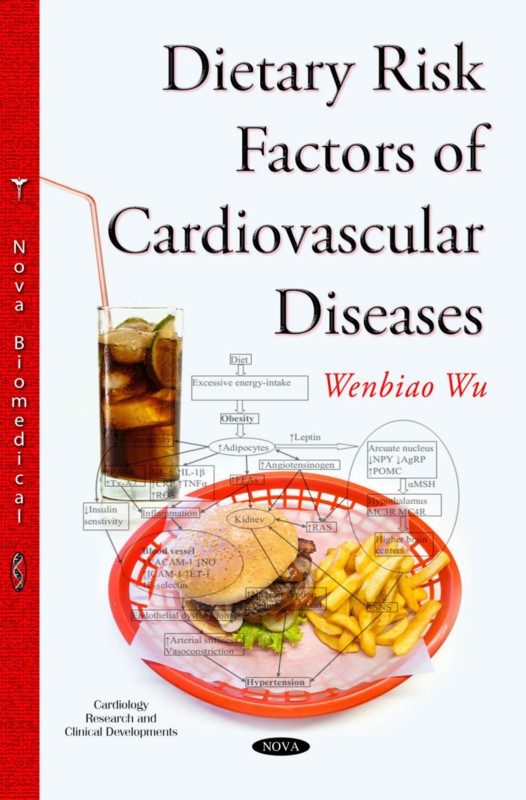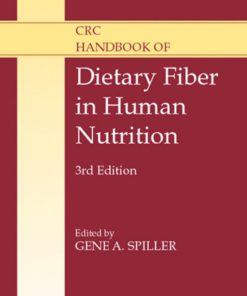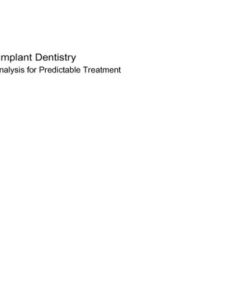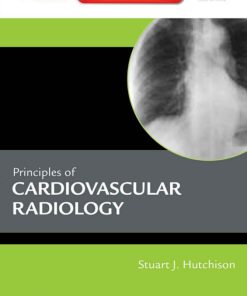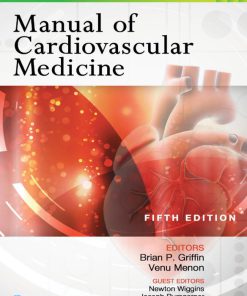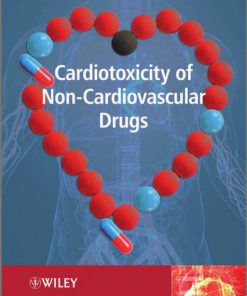Dietary Risk Factors of cardiovascular diseases 1st Edition by Wenbiao Wu ISBN 9781634827614 163482761X
$50.00 Original price was: $50.00.$25.00Current price is: $25.00.
Authors:Research Services Branch , Author sort:Branch, Research Services , Published:Published:Jul 2015
Dietary Risk Factors of cardiovascular diseases 1st Edition by Wenbiao Wu – Ebook PDF Instant Download/Delivery. 9781634827614 ,163482761X
Full download Dietary Risk Factors of cardiovascular diseases 1st Edition after payment
Product details:
ISBN 10: 163482761X
ISBN 13: 9781634827614
Author: Wenbiao Wu
Although successful efforts have been greatly exerted to prevent and treat cardiovascular diseases (CVDs), it currently causes the most number of global deaths among all kinds of diseases. This book has comprehensively reviewed dietary risk factors for CVDs. There are several approved dietary risk factors for CVDs in our daily diets and foods. The dietary risk factors include toxicities caused by an over-consumption of cholesterol, energy, saturated fatty acids, saccharides (especially fructose), iron, sodium, alcohol, niacin, homocysteine, alkaloids (such as synephrines, caffeine, tyramine, dopamine, histamine, and cyanide), nucleic acids and trans-fatty acids.
Other extensive factors include the metabolites of choline-containing compounds or L-carnitine, and environmental contaminants such as mercury and cadmium; the deficiencies of folate and vitamins D, B6, or B12; the toxicity or deficiency of magnesium; and the consumption of sweetened soft drinks. Underweight, or even normal weight individuals might not decrease the occurrence of cardiovascular diseases because the deficiency of some nutrients, and alkaloids in the above mentioned chapters that are able to control weight could also damage the cardiovascular system. It seems that the association of all these risk factors in blood with CVDs has been well established, though some controversial opinions on some risk factors exist. Therefore, it should be worth carrying out further studies on the correlation of these risk factors in foods with the occurrence of CVDs.
Dietary Risk Factors of cardiovascular diseases 1st Edition Table of contents:
Section 1: Introduction to Cardiovascular Diseases
Chapter 1: Overview of Cardiovascular Diseases
- Definition, types of cardiovascular diseases, and global epidemiology.
Chapter 2: Pathophysiology of Cardiovascular Diseases
- Mechanisms of atherosclerosis, hypertension, and heart failure in the context of diet and lifestyle.
Chapter 3: Role of Nutrition in Cardiovascular Health
- General principles of nutrition and their effects on heart health, including the influence of fat, sugar, and salt intake.
Section 2: Key Dietary Risk Factors for Cardiovascular Diseases
Chapter 4: Dietary Fat and Its Impact on Heart Health
- Saturated fats, trans fats, and their relationship with cholesterol levels and cardiovascular risk.
Chapter 5: Carbohydrates and Cardiovascular Risk
- The effects of refined sugars, glycemic index, and processed carbohydrates on cardiovascular health.
Chapter 6: Sodium and Hypertension
- The link between sodium intake, blood pressure regulation, and cardiovascular diseases.
Chapter 7: The Role of Fiber in Heart Health
- How dietary fiber influences cholesterol levels and overall heart function.
Chapter 8: Micronutrients and Cardiovascular Disease Prevention
- The roles of vitamins, minerals, and antioxidants (such as vitamin D, magnesium, and omega-3 fatty acids) in protecting against heart disease.
Chapter 9: Alcohol Consumption and Cardiovascular Health
- Effects of moderate and excessive alcohol consumption on heart health.
Section 3: Diet and Prevention of Specific Cardiovascular Diseases
Chapter 10: Diet and Coronary Artery Disease (CAD)
- The role of diet in the prevention and management of coronary artery disease, including the impact of cholesterol-lowering diets.
Chapter 11: Dietary Approaches to Hypertension
- Evidence-based dietary recommendations for managing high blood pressure through nutrition.
Chapter 12: Diet and Heart Failure
- Nutritional interventions to support individuals with heart failure, focusing on salt restriction and fluid management.
Chapter 13: Obesity, Metabolic Syndrome, and Cardiovascular Risk
- The connection between obesity, metabolic syndrome, and cardiovascular diseases, and how dietary changes can help mitigate these risks.
Section 4: Dietary Patterns and Cardiovascular Disease Risk
Chapter 14: Mediterranean Diet and Cardiovascular Health
- The benefits of the Mediterranean diet, rich in fruits, vegetables, whole grains, and healthy fats, for preventing cardiovascular diseases.
Chapter 15: DASH Diet and Blood Pressure Control
- How the Dietary Approaches to Stop Hypertension (DASH) diet contributes to blood pressure reduction and cardiovascular health.
Chapter 16: Plant-Based Diets and Heart Health
- The role of vegetarian and vegan diets in reducing cardiovascular risk factors and improving heart health outcomes.
Chapter 17: Western Diet and Its Adverse Effects
- The negative impact of the Western-style diet (high in processed foods, sugars, and unhealthy fats) on cardiovascular health.
Section 5: Implementing Dietary Changes
Chapter 18: Dietary Guidelines for Cardiovascular Disease Prevention
- A review of international guidelines and recommendations for heart-healthy eating patterns.
Chapter 19: Practical Strategies for Heart-Healthy Eating
- Tips for adopting heart-healthy dietary habits in daily life, including meal planning and grocery shopping.
Chapter 20: Behavioral and Psychological Aspects of Diet Changes
- Addressing barriers to dietary change, such as food preferences, cultural factors, and social influences.
Section 6: Emerging Research and Future Directions
Chapter 21: Emerging Dietary Trends in Cardiovascular Disease Prevention
- Current research on new dietary interventions, such as intermittent fasting, ketogenic diets, and personalized nutrition for heart disease prevention.
Chapter 22: Role of Gut Microbiota in Cardiovascular Health
- Exploring the connection between gut health, diet, and cardiovascular diseases.
People also search for Dietary Risk Factors of cardiovascular diseases 1st Edition:
what are the risk factors of cardiovascular disease
dietary risk factors
dietary factors and risks of cardiovascular diseases an umbrella review
what are the risk factors of having cardiovascular disease
You may also like…
eBook PDF
Principles of Cardiovascular Radiology 1st edition by Stuart Hutchison 9780323314442 0323314449
eBook PDF
Quantitative Financial Risk Management 1st edition by Desheng Dash Wu ISBN 3642268900 978-3642268908
eBook PDF
Manual of Cardiovascular Medicine 5th Edition by Brian Griffin ISBN 1496312600 978-1496312600

